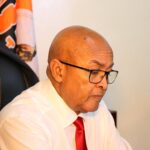The Government of Finland has today announced a grant of 7.65 million Euros in support of strengthening educational services for Somali children. The grant will be administered through UNICEF Somalia’s education programme.
Speaking during the launch of this partnership in Mogadishu today, Federal Minister of Education Culture and Higher Education Honorable Abdullahi Abukar Haji said the partnership would expand the availability of schools for the many children who were out of school.
“Finland is extremely pleased to start this partnership with UNICEF for the benefit of Somali children,” said Finnish ambassador His Excellency Pirkka Tapiola. “Education is a fundamental human right and a priority in Finland’s development cooperation. Our aim is to support the inclusiveness of education systems at all levels of administration. It is crucial to support equal access to educational services and strengthen capacities to improve learning outcomes. This requires well-educated teachers and investments into better teaching and learning practices and educational environments.”
UNICEF’s support to the education sector aims at expanding access to pre-primary and primary education and ensuring that children acquire the learning outcomes and skills required for success in later life. This engagement directly aligns with government sector policy priorities articulated in the Education Sector Strategic Plan.
“Finland’s contribution comes at a critical time when we are just beginning our new, five-year country programme of cooperation with the Government of Somalia,” said UNICEF Representative Mohamed Ayoya. “The programme sets ambitious targets aimed at doubling primary school enrolments, improving the quality of education, and strengthening the capacity of our government partners to deliver a more equitable education for all children. Providing every child with a chance to learn is the best investment any nation can make, and we are proud to be part of this effort in Somalia.”
Significant efforts have been made by the Government in recent years to increase the proportion of children enrolled in quality school services and complete a full cycle of primary education. There remain however a significant number of children, particularly those residing in rural areas and those from the poorest families, whose rights to basic education are denied. Investing in the education of Somali children is a critical means of reducing poverty, driving sustainable economic growth, and preventing inequality as well contributing to gender equality and the empowerment of children and adolescents.





